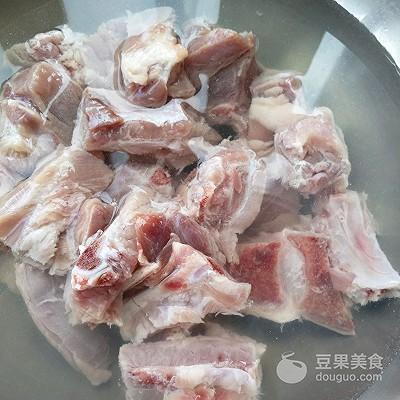Unit 12 Where did you do last weekend?
本单元重点依然是一般过去时,以及Wh-和How引导的特殊问句。
Section A
必背单词或词群:
1. do one’s homework做家庭作业
2. go to the cinema去看电影
3. go boating去划船
4. camped by the lake在湖边扎营
5. go to the beach去海边/沙滩
6. play badminton打羽毛球
7. last weekend上周末
8. on Saturday morning在周六上午
9. visit sb. 拜访某人
10. study for a test为考试而学习
11. go to a farm 去农场
12. work as…作为……而工作
13. at the Natural History Museum在自然历史博物馆
14. a butterfly house with over 200 kinds of butterflies有200多种蝴蝶的蝴蝶房
15. tell sb. about sth.告诉某人关于某事
16. living habits生活习惯
17.have a good weekend周末愉快
18. kind of tired有点累
19. stay up late熬夜
20. watch the soccer game观看球赛
21. a family of mice老鼠一家
22. in the kitchen在厨房里
23. a second language第二门语言

必背句型:
1.What did you do…?
What did you do last weekend?
I did my homework./ We went boating.
2. Who 动词过去式 …?
Who visited her grandma? Becky did.
3. Where did she/he/they…?
Where did she go last weekend? She went to a farm.
4.Who did she/he/you/Linda go with?
句子解析:
1. What did you do last weekend, Lucy? 露西,你上周末做什么了?(教材七下P67 1a)
这是一般过去时的特殊疑问句,句中did是助动词,没有人称和数的变化,其后的谓语动词要用原形。
What did he do last night? 他昨晚干什么了?
What did Lily do yesterday? 莉莉昨天做什么了?
2. How interesting! 多么有趣啊! (教材七下P68 2d)
How 形容词,本句为how引导的感叹句,后面省略了it was。此句完整的表达方式为“How interesting it was!”。其中how修饰形容词或副词(被强调部分)。
这类句子的结构形式是“How adj./adv.( 主语 谓语)!”。
感叹句也可用 what 引导,其结构为“What (a/an )adj. n.( 主语 谓语)!”。
How beautiful they look! 它们看起来多漂亮啊!
How strange a feeling it is! =What a strange feeling it is!
这种感觉真奇怪!

Section B
必背短语或词群:
1. play the guitar弹吉他
2. have dinner with sb.和某人一起吃晚餐
3. go to the library去图书馆
4. fly a kite放风筝
5. swim in a swimming pool在游泳池游泳
6. finish high school高中毕业
7.two weeks ago两周以前
8. as a special gift作为一个特殊的礼物
9. take sb. to sp.带某人去某地
10. be scary害怕的
11. go camping 去扎营
12.in a small village in India在印度的一个小村庄
13. take a long bus ride to a lake in the countryside乘长途公交去乡下的湖边
14. put up tents搭建帐篷
15. make a fire生火
16. keep warm保暖
17. cook food 做饭
18. on the first night在第一天夜里
19. sit under the moon在月光下
20. tell each other stories彼此讲故事
21. so… that…如此……以致于……
22. go to sleep early早早入睡
23. the next morning第二天早晨
24. get a terrible surprise非常吃惊
25. look out of the tent看向帐篷外
26. shout to sb…冲……喊
27. let sb. do让某人做某事
28. know about the danger知道危险
29. start to do…开始做……
30. jump and down跳上跳下
31. wake sb. up叫醒某人
32. move into the forest near the lake进入湖边的森林
33. feel things moving感觉有东西动
34. a very successful lesson一堂非常成功的课

1.ago和before的区别
ago 常用于一般过去时,所指时间是从现在算起。
before 常用于过去完成时,所指时间是从过去某一时刻算起。
I saw you two days ago. 我两天前见过你。
We had got to the station two hours before.两个小时前我们就到了车站
2. scared adj. 惊慌的;吓坏了的
搭 be scared to do sth.害怕做某事 be scared of害怕··
Don't be scared of asking for help.不要害怕开口求人。
3. start v.开始;着手
Start in 着手;开始 start out/off动身,出发
start to do/doing sth.开始做某事 start a fire 点火
例When did you start to learn English?你什么时候开始学英语的?
4. wake v.(woke ) 弄醒;醒
wake 动词及物动词,常与副词up连用,后接名词作宾语时,可以放在 wake与up中间或放在up后面;后接代词作宾语时,应将代词放在 wake 与 up 中间。
wake...up 把……弄醒
When she woke, the sun was streaming through the window.
她醒来时,阳光泻入窗内。

句子解析:
1.Did you do anything interesting last weekend?
上周末你做了什么有趣的事情吗?(教材七下P70 1e)
本句中的anything interesting 属于形容词修饰复合不定代词的情形。形容词修饰不定代词时,形容词要放在不定代词后面。例That is not anything important.那不是什么重要的东西。
2.But I was so tired that I went to sleep early. 结果状语从句
但是,我是如此疲倦,以至于我很早就睡了。(教材七下P71 2b)0口口“so...that...”意为“如此……以至于……”,引导结果状语从句。so 在此处是副词,意为“如此;那么”,常用来修饰形容词或副词。这一句型可以与“such...that.”互换,但such后接名词。
例 He is so clever a boy that everybody likes him.
=He is such a clever boy that everybody likes him.他是一个如此聪明的男孩子,大家都喜欢他。

3. He also told me it was important not to go near a snake.他还告诉我,重要的是不要靠近蛇。(教材七下P71 2b)
It时形式主语, to go near a snake真正的主语
本句是含有宾语从句的复合句,主句是“He also told me”,宾语从句为“it was important not to go near a snake"。
“It be adj. to do sth.”结构,是英语中一个重要的形容词句型,十分常见。
在该结构中, it是形式主语,真正的主语是后面的不定式结构,可以用于这一结构的形容词有important(重要的),easy(容易的),difficult(困难的)等。
It's easy to run, but it's not easy to be the first.跑是很容易的,但要当第一名却不那么容易。

一般过去时(用法见Unit 11讲义)
一般过去时的特殊疑问句是由疑问代词(who, what, which)和疑问副词(where, when, why, how)引导的疑问句对过去的动作或状态进行提回回答时应用过去时态进行回答
1. 疑问词在句中不充当主语时,句型结构为:
(1)疑问词 was/were 主语 其他?
例-How was your weekend? 你的周末过得怎么样?
-It was great.棒极了。
(2)疑问词 did 主语 动词原形 其他?
例-Where did you go last weekend? 上周末你去哪儿了?
-I went to the park for a picnic. 我去公园野餐了。
2. 疑问词在句中充当主语时,句型结构为:
(1)疑问词 was/were 表语 其他?
-Who was here just now? 刚才谁在这儿?
-Tom was here.汤姆在这儿。
(2)疑问词 行为动词的过去式 其他?
-Who cleaned the room yesterday? 昨天谁打扫了房间?
-I did.我打扫的。

3.一般现在时陈述句变为一般过去时特殊疑问句的步骤:
(1)将一般现在时的陈述句变为一般过去时的陈述句,即将谓语动词变为过去式。
例They go to Shanghai. →They went to Shanghai.他们去了上海。
(2)将一般过去时的陈述句变为一般疑问句,即将was, were, 等放到句首或借助助动词 did
例 They went to Shanghai.他们去了上海。(一般过去时的陈述句)
例 Did they go to Shanghai?他们去上海了吗?(一般过去时的疑问句)(3)根据提问内容,确定疑问词,即who/whom(人),what(物),where(地点),when(时间),why(原因)等。
Where did they go? 他们去了哪里?
When is your birthday? 你的生日是什么时候?
,




